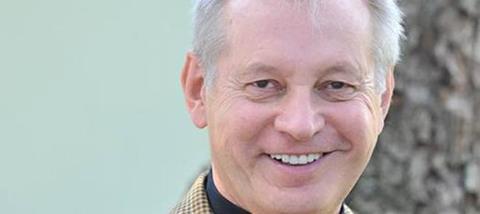Douglas Ell was shocked to discover overwhelming evidence for God in an unlikely place

Plenty of people enjoy treating God like a joke. One of them was Douglas Ell. Sure, Ell had grown up in a church, but as he matured, he shed his faith. By the time he was a teenager, he was comfortable labelling himself an atheist – and was courteous enough to mail his pastor to tell him so. The minister sent Ell a book to read, but Ell was beyond doing any additional homework on God: he had far too much homework ahead of him on the topic of science.
Ell grew up a self-described nerdy kid, writing out long numbers for entertainment and devouring books on complex, intellectual topics. At Massachusetts Institute of Technology (MIT) he achieved undergraduate degrees in maths and chemistry, then trotted down to the University of Maryland to obtain an MA in theoretical mathematics.
Despite his great talent for such subjects in an abstract field, the jobs were much like the numbers: theoretical.
Ell obtained work for a few years as a computer programmer before figured out what he really wanted to do for a job, and went to law school, graduating with honours.
Ell’s rise in the legal field was rapid and prominent. He became a sought-after attorney to nationally recognised corporations, unions and pension plans. He litigated before Congress for the rights of employee benefit laws. If God ever figured in his thinking, the idea was dimissed with disdain.
The turning point
But there was a small inconvenience for Ell’s atheism: his newborn son. After having a child, the decision was made that the family should go to church. And so, despite his disbelief, Ell and his wife attended a local congregation for the sake of their son.
Ell decided to treat the church like a social club. This was, after all, simply a community of friendly and supportive families meant to create a nourishing environment for his child’s development. No sense letting the little matter of supernatural belief get in the way of cordiality.
However, Ell was confounded by the easy inner peace that the Christians around him seemed to have. It wasn’t something he seemed to have access to, and it wasn’t something he could easily explain away either.
As time went by, Ell’s career led to further travel, and he fell back into his boyhood pattern of reading up on the sciences during lengthy trips. However, this time he added the topic he had specifically ignored in his youth: religion.
He initially expected science and Christianity to be like oil and water: strictly refusing to cohere. But Ell was surprised to find the opposite. After much reading on the topic between airport terminals and crowded train compartments, Ell found that Christianity drew the sciences together for him in seven distinct ways:
- Evidence for the beginning of the universe
- The apparent 'fine tuning' of the universe
- The specified complexity of life, and the lack of any reasonable explanation for its origin
- The futuristic 'technological' nature of life
- Evidence against unguided Neo-Darwinian evolution
- The unique and special nature of Earth
- The universal language of Mathematics
Ell’s training in law had educated him in how to construct cogent and considerate arguments, and the more he considered it, the more science pointed towards God’s existence and the truth of Christianity. Finally, Ell accepted that Christianity must be true, and joined the community of the church he attended in earnest.
Proving God
More than just joining them, however, Ell was excited to share how the existence of God – and truth of the Christian worldview – had brought together the sciences for him. Ell began speaking at his church and others about his developing arguments for the truth of Christianity, based on science and maths. As his message caught on, Ell sat down to work properly on his arguments. The conclusions he came to were astounding.
Using his advanced knowledge of mathematical analysis, combined with the latest science, Ell came up with probability calculations which were incredible: practical proof, he concluded, of a designed and ordered universe. Sitting with his friend Peter Fisher one evening, Ell told him, 'You know, someone should write a book about this, because I'm finding modern science strongly supports belief in God.' Fisher, who is now head of the physics department at MIT, responded, 'Maybe that someone could be you.'
Thus inspired, Ell poured out his findings into his book, Counting to God, which takes the more theoretical elements and breaks them down to an understandable level, by which Ell hoped to convey the beauty he saw in science and maths to the eyes of the reader.
Ell now travels across America speaking on his seven-point theory of God and the sciences; and giving lectures on probability theory and how it points to God. To Ell, God was no longer disdained as a delusion but became the very centre to which the universe and his own life pointed.
This blog was originally published on examiner.com by Joel Furches
































